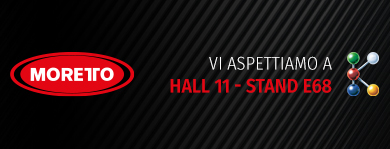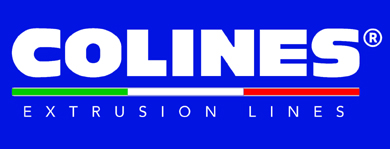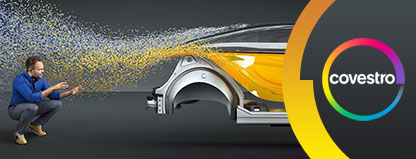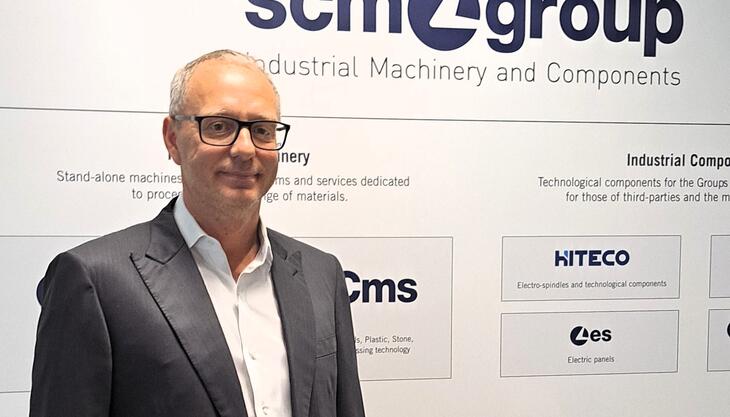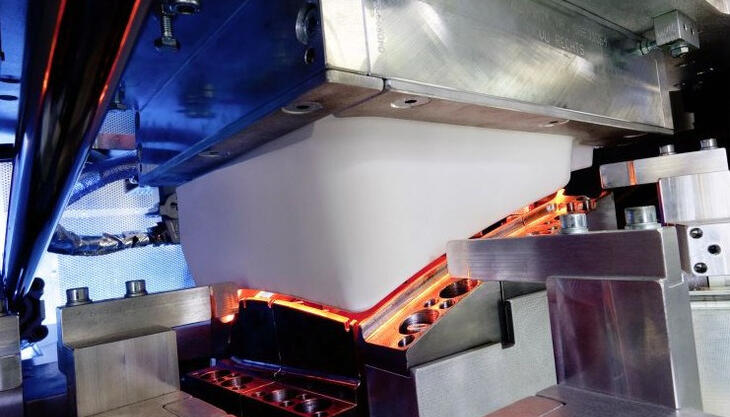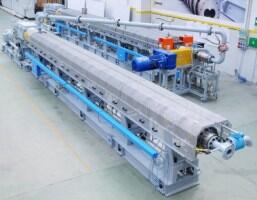
Since its foundation in 1962, Maris (stand C06, hall 17, at K 2013), manufacturer of corotating twin-screw extruders, has always been a leading innovator in the research of new, state-of-the-art applications for its products. With the aim of providing the customer with the widest range of choices, every mechanical component of the extruder is entirely manufactured in-house. The corotating twin-screw extruder, as an alternative to the batch system, is extremely advantageous from an engineering perspective. As a dynamic mixer characterized by intermeshing and self-cleaning screws, the extruder is fed in a continuous way with free-flowing material, by means of gravimetric feeders. This ensures not only process stability and reproducibility, but also flexibility in the changes to the formulations.
The experience gained by the company with hot-melt and total solid applications has been transferred to solvent based adhesives. This particular category of adhesive is commonly produced in dissolvers, with the use of a noteworthy quantity of solvent. Once spread, the solvent is vaporized, an operation that limits the speed of the entire production phase.
The corotating twin-screw extruders, on the contrary, allow to significantly decrease the amount of solvent in the adhesive. This permits to limit the environmental impact of the whole process: a 500 kg/h production is estimated to reduce the emission of solvent in the atmosphere by about 30.000 l/year.
Maris technology, which is continuous and complies with Atex norms, helps limit the plant costs: a smaller percentage of solvent means quicker evaporation times and, simultaneously, higher production speeds. The volume of solvent saving positively affects both process phase and storage, thus ensuring production safety and security.
The flexibility of the extruder and its quick response to the variation of the process parameters ensure a direct on-line control of the material viscosity. It is therefore possible to use different types of natural rubber, including lower qualities. It is also possible to color the material, with the addition of a further, smaller extruder. This operation, due to the self-cleaning characteristic of the two co-rotating screws, is simple and allows to minimize cleaning times.
The company technology for the continuous production of solvent based adhesive is based on two solutions. The first (One Step) is ideal when the primary target is an economical and simple system. The second (Two Steps) enables higher production rates and greater plant flexibility.





